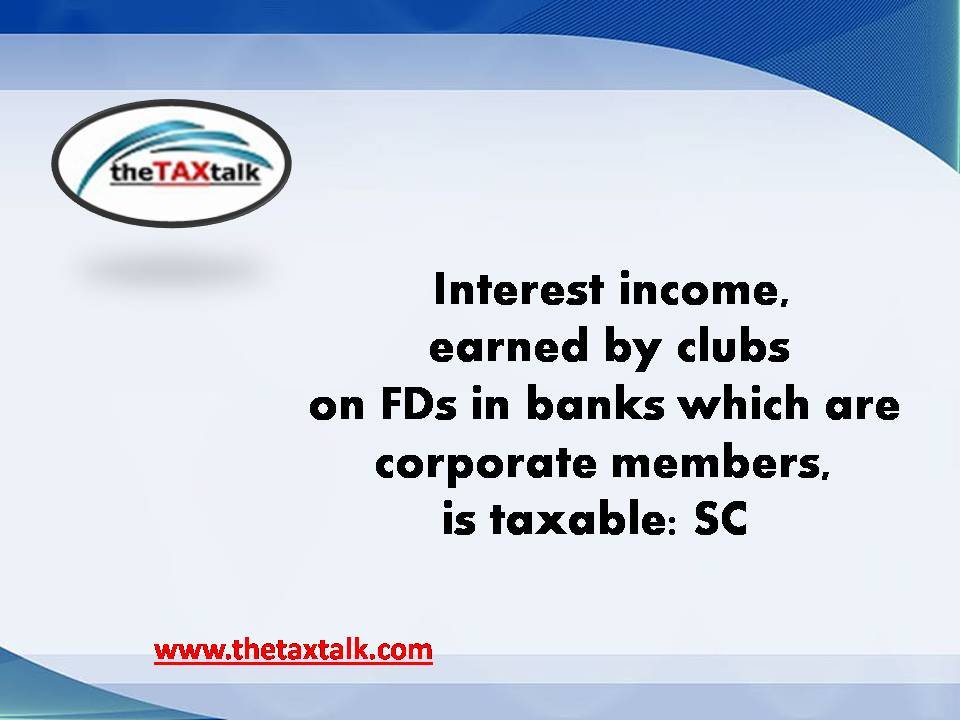![]()
Interest income, earned by clubs on FDs in banks which are corporate members, is taxable: SC
SECUNDRABAD CLUB ETC. (CA No. 5195-5201 of 2012)
Facts:
1. Hon Supreme Court was dealing with a batch of SLPs arising from the decision of the Andhra Pradesh and Madras High Court, pertaining to the Secunderabad Club, Madras Gymkhana Club, Madras Cricket Club, and the M/s Wellington Gymkhana Club, amongst others.
2. The High Courts in the impugned decision had held that the interest earned on the bank deposits made by the assessee Clubs is liable to be taxed in their hands and that the principle of mutuality would not apply.
3. Hon SC in Commissioner of Income Tax vs. M/s Cawnpore Club Ltd., Kanpur, (2004) 140 Taxman 378 (SC), had held that with respect to the “other questions” which arose in the appeal, the assessee club could not be taxed because of the principle of mutuality (other questions were not however specified).
4. Hon SC in Bangalore Club vs. Commissioner of Income Tax, (2013) 5 SCC 509, had ruled that the interest earned by the assessee Clubs on the surplus funds invested in FDs with the corporate member banks will not fall within the ambit of the mutuality principle.
Against a background of the above, seemingly conflicting judgements, Hon SC has held as below:
1. If any income is earned by the Clubs through its assets and resources, from persons who are not members of the Clubs, such income would also not be covered under the principle of mutuality and would be liable to be taxed under the provisions of the Income Tax Act.
2. Where the bank has a right to utilize the said fixed deposit amounts for its banking business subject to repayment of the principal along with interest, then, the element of complete identity between the contributors to the common fund and the participators in the surplus would be lost, which is a sine qua non for the application of the principle of mutuality.
3. The plea that the two-judge Bench judgement of the top court in Bangalore Club vs. is not a binding precedent is liable to be dismissed.
4. In the case of Cawnpore Club, top court had did not spelled out what “the other questions” were in respect of which the respondent could not be taxed owing to the principle of mutuality.
Conclusion: Interest income earned on fixed deposits (FDs) made by Clubs in the banks which are members of those Clubs has to be treated like any other income from other sources within the meaning of Section 2(24) of Income Tax Act, 1961.

